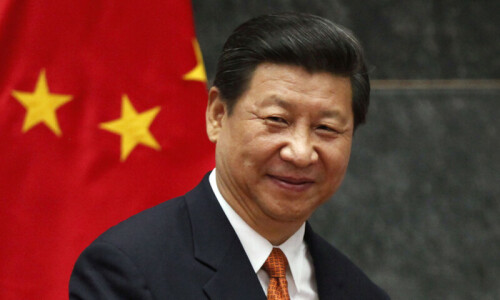FOR the state, NGOs, donor agencies and multilateral institutions, culture is a segregated affair, perceived as a ‘set of things’ requiring sectoral interventions as in music, the arts and literature. Even Unesco, whose mandate it is to raise awareness of the rich and diverse mesh of culture, has invested only in select domains of Pakistan’s cultural heritage. The concept of culture remains limited to heritage, aesthetics and art, and its multifarious links as ‘a way of life’ with social and economic change are as yet undefined.
Understood as comprising norms, traditions, values and the social structure of society, culture forms the lens through which people see the world. These are significant aspects that influence individual and community worldviews, perceptions and behaviour. Worldviews affect the way people think and react to risks and opportunities offered by the process of development.
To decrease uncertainty — a result of rapid modernisation — people construct cultural ideas about what causes the change and the possibility of religious intervention that can inform them of what to do. The significance of these cultural ideas must be understood and incorporated into any attempt to deal with development rather than treated as illogical.
The idea that information and knowledge provided by the outside agency (NGOs or the state) will make people behave rationally is discredited. Communities interpret information through their own cultural lens. They may draw conclusions which are not the same as those of the outside agency.
Where culture acts as a barrier it is important to understand it.
As Terry Cannon put it in the context of environmental change, “If ‘traditional’ societies do it through magical-religious practices, modern societies do it through forecast. Even with these different epistemological approaches, shamans and meteorologists fulfil the function of interpreters to reduce climatic uncertainty”. It is only by investing in understanding the rationalities behind a variety of behaviour, some of which may appear to outsiders as irrational, that we can come up with culturally informed development strategies.
As a social construct, religion is a particularly important driver of perception and behaviour, in both constructive and negative ways. Although the social sciences have extensively studied religion and belief systems, this understanding is rarely consulted for guiding social development.
Governments disregard culturally embedded knowledge in the formulation of national policies and share the agnostic approach of donors and NGOs towards social change. They rely on technocratic solutions based on scientific rationality. Pakistan’s development strategies fail to understand the underlying intricacies of religious belief systems as they play out in the process of social change.
A case in point is the culture of resistance in the polio vaccination campaign in Pakistan carried under the Global Polio Eradication Initiative. The vaccination campaign has become a contested affair which draws on the varied and deep-seated beliefs and mistrust of foreigners, leading to tension between divergent viewpoints and value systems. Although the government has faced stiff opposition from religiously motivated militant factions, leading to the murder of more than 50 LHWs and their armed escorts, the cultural rationality of resistance to the anti-polio campaign has not been fully explored.
Authoritarian regimes perceive the opposition to vaccination as a challenge to the state’s writ. However, elsewhere in the world, especially in the US, exemptions have been granted to mandatory vaccination based on religious beliefs, while strictly warning the parents of the health risks and social consequences of unvaccinated children. In Pakistan, no active effort was made to negotiate with an alternate cultural rationality, even when a TTP spokesperson reportedly expressed consent for the polio vaccination, provided assurances that polio drops were made according to Islamic tenets and that the campaign would not be used for espionage were given.
Where cultural factors are acting as barriers, it becomes even more important to understand and transform them. Taking alternate cultural logic obliges us to explore how local norms, values, and belief systems can be deployed as an aid in the process of modernisation — in order to develop an approach that can be effectively used by traditional and religious communities. In Botswana, WHO makes a similar case for integrating positive aspects of ‘witchcraft’ in the national health system, given the therapeutic potentials of spiritual healing.
Studies on behavioral economics, psychology, sociology and anthropology have long debated the relevance of alternate cultural rationalities for dealing with development and modernisation but surprisingly this knowledge has had little impact on the development discourse. The first step in changing the way that the development sector deals with religion and beliefs is to understand that faith matters, and understanding its advantages and disadvantages should be integrated into development policies.
The writer is secretary general of the Council of Social Sciences Pakistan.
Published in Dawn, June 2nd, 2015
On a mobile phone? Get the Dawn Mobile App: Apple Store | Google Play













































